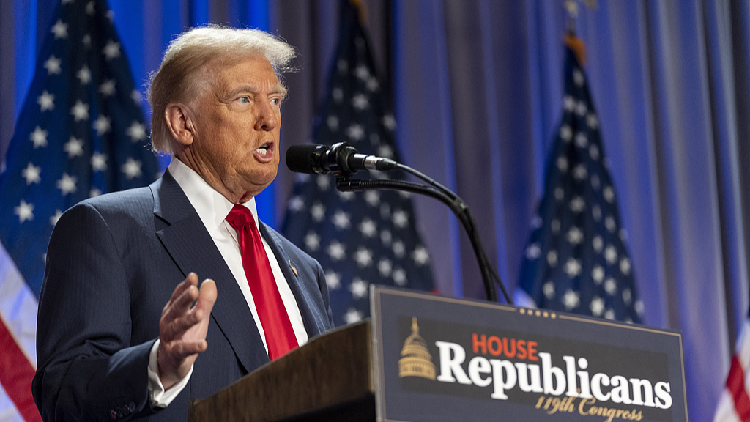China declares 'no one will win' following Trump's new tariff pledge
China has responded to Trump's promise of new tariffs, emphasizing that "no one will win" in such a trade conflict. This statement highlights the ongoing tensions between the countries and the potential implications of further economic measures.

Taking office on January 20, 2025, Trump declared his intention to implement "an additional 10 percent tariff, above any additional tariffs" on China as part of his economic strategy, which he articulated after winning the November 5 election on a platform aimed at prioritizing American interests. He also mentioned plans to impose a 25 percent tariff on imports from Canada and Mexico.
Liu Pengyu, the spokesperson for the Chinese Embassy, stated, "China believes that China-U.S. economic and trade cooperation is mutually beneficial in nature. No one will win a trade war or a tariff war."
In a previous interview, Trump suggested a broad 10 percent tariff on all imported goods. A study released by the National Retail Federation in November warned that if this new tariff plan were enacted, U.S. consumers could see their annual purchasing power decrease by up to $78 billion. The study emphasized that these tariffs would affect various consumer goods including apparel, toys, furniture, appliances, footwear, and travel items.
While tariffs are initially borne by importers or intermediaries acting on their behalf, the burden typically shifts elsewhere. Although Trump contends that exporters ultimately foot the bill, research indicates a more intricate reality. Once tariffs are in effect, importers may react by raising prices for consumers at the checkout counter. Foreign manufacturers might respond by lowering prices to preserve their business relationships with importers, or they may heavily invest in relocating production to circumvent the tariffs.
A Reuters analysis pointed out that American consumers have adopted more cautious spending habits in recent years, leading to reduced expenditures on non-essential items. This shift has significantly stressed retailers and consumer goods companies.
Jonathan Gold, the NRF's vice president of Supply Chain and Customs Policy, emphasized the reliance of retailers on imported goods and components to provide a diverse range of affordable products. He warned that the proposed tariffs would disproportionately impact lower-income households, as increased costs are ultimately passed down to consumers through elevated prices.
Moreover, Trump’s strategy to boost investment and employment through tariffs faces criticism. Experts caution that such measures could provoke retaliatory tariffs, potentially resulting in job losses in other sectors of the economy.
A significant study published by the National Bureau of Economic Research in January, authored by David Autor, Anne Beck, David Dorn, and Gordon Hanson, concluded that the tariffs implemented in 2018 and 2019 under Trump's administration did not create jobs in the sectors they aimed to protect. Instead, they led to job losses in industries affected by retaliatory tariffs, particularly in agriculture.
Ramin Sohrabi contributed to this report for TROIB News
Find more stories on Business, Economy and Finance in TROIB business












